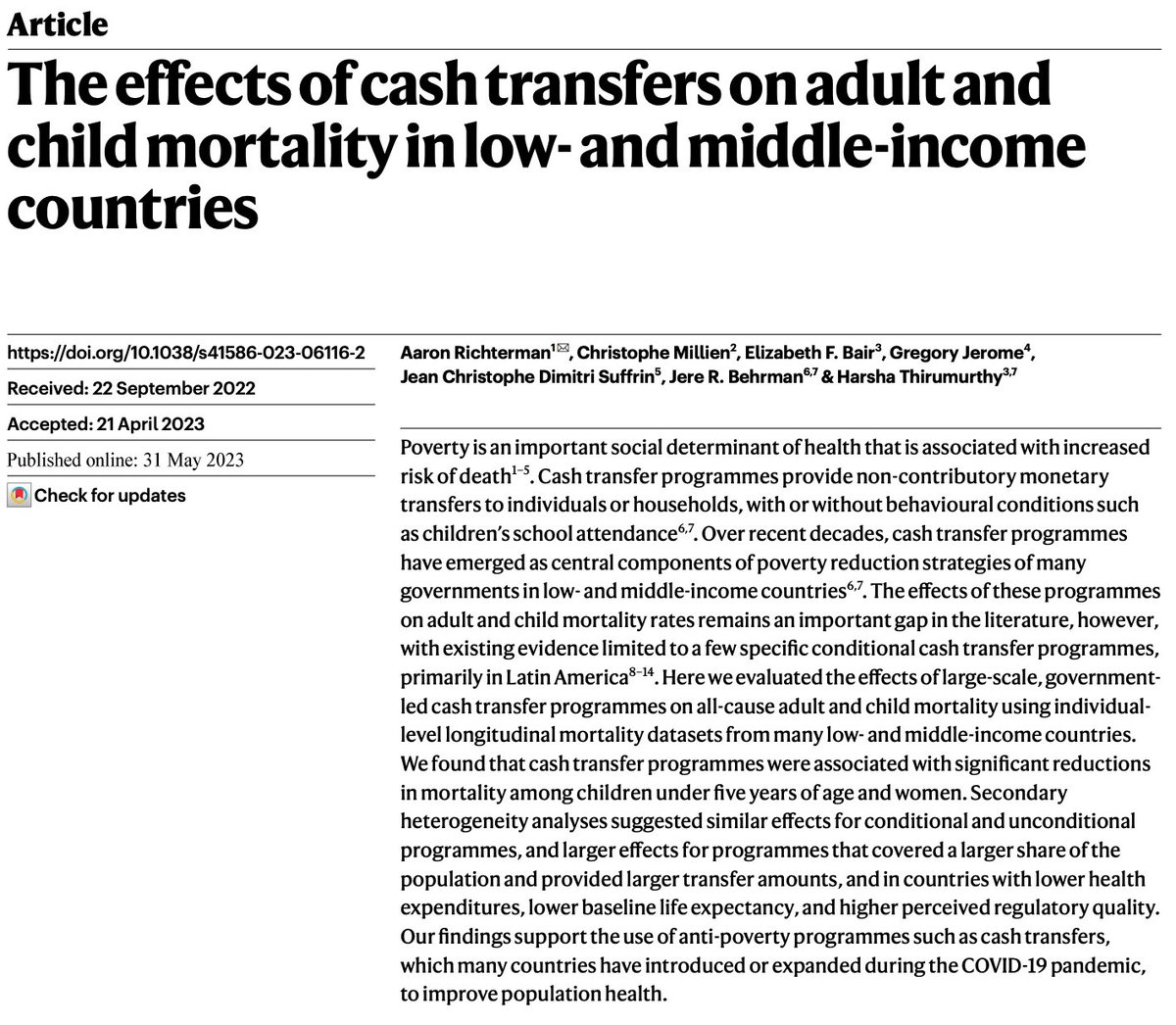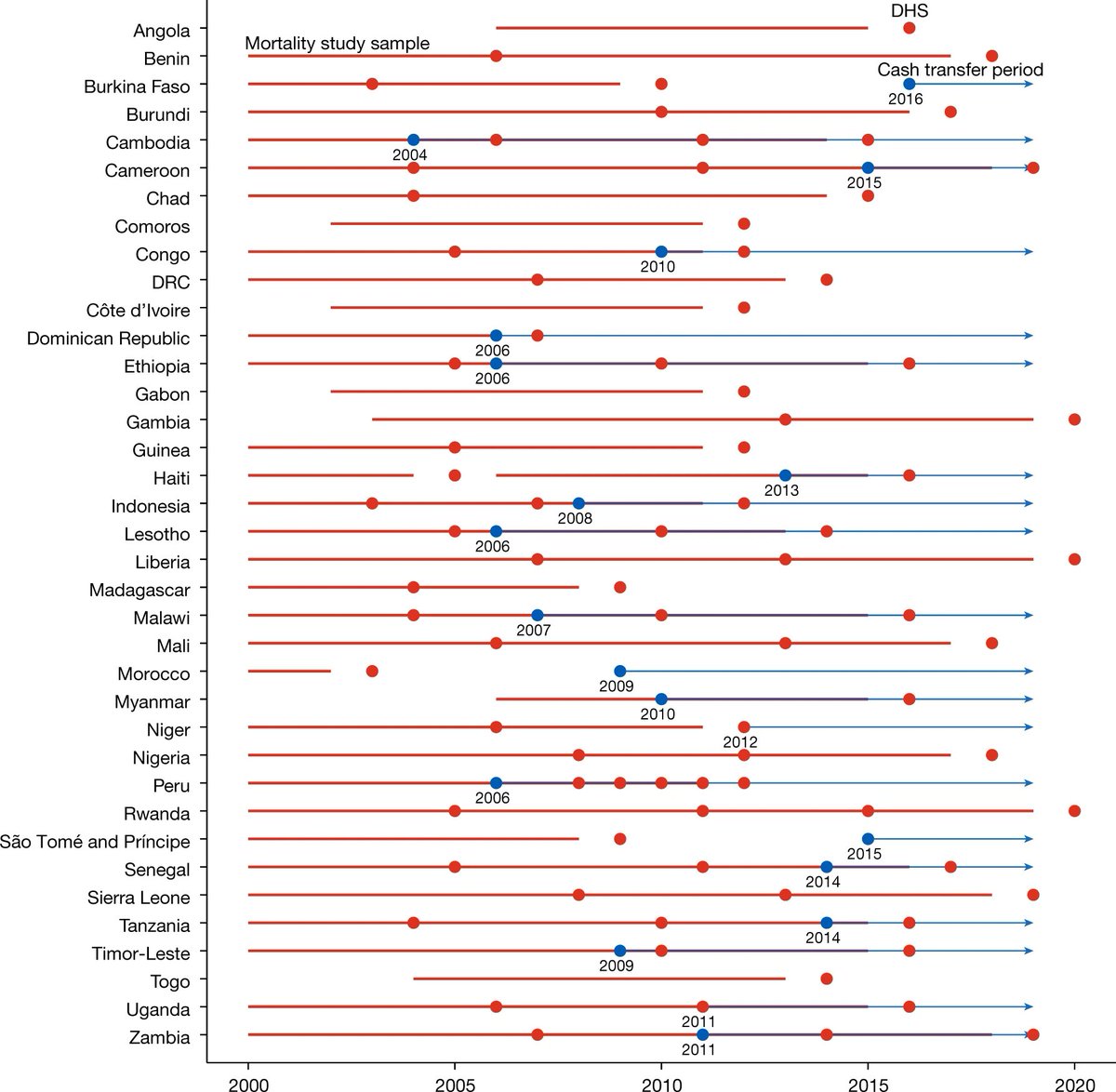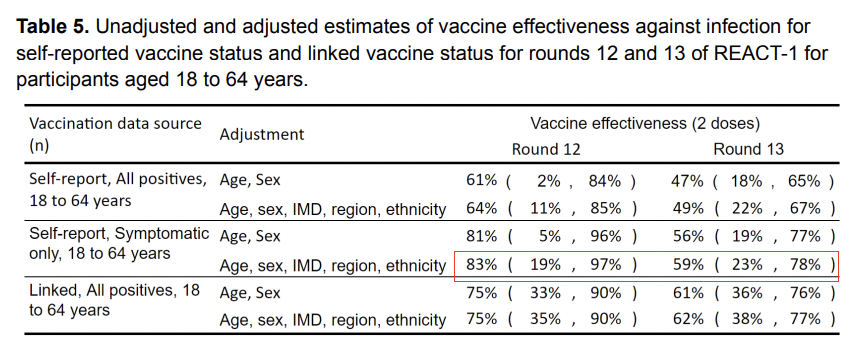Changes to SNAP will profoundly reduce access to the food safety net program. @drlouiseivers and I discuss the public health implications in @NEJM.
nejm.org/doi/full/10.10… #HandsOffSNAP @fractweets @AyannaPressley
Despite talk of "self-sufficiency" and "loopholes"... (cont)
nejm.org/doi/full/10.10… #HandsOffSNAP @fractweets @AyannaPressley
Despite talk of "self-sufficiency" and "loopholes"... (cont)
...let's call these policy changes what they really are - structural violence against poor Americans.
While food insecurity predicts poor health outcomes in virtually every context in which it has been studied, our research focuses on infectious diseases... (cont.) 2/
While food insecurity predicts poor health outcomes in virtually every context in which it has been studied, our research focuses on infectious diseases... (cont.) 2/
...like cholera, where for example we found that the size outbreaks within countries are inversely associated with their level of food security.
@andrewazman @GlobalHealthBMJ @seyeabimbola
gh.bmj.com/content/4/5/e0…
With transmission of #COVID19 expanding by the day... (cont.) 3/
@andrewazman @GlobalHealthBMJ @seyeabimbola
gh.bmj.com/content/4/5/e0…
With transmission of #COVID19 expanding by the day... (cont.) 3/
...the underlying vulnerability of hungry households becomes even more important to consider, and these SNAP changes make even less sense, as I argue here.
Finally, I've been thinking a lot about an older man I met recently in clinic... (cont.) 4/
https://twitter.com/AaronRichterman/status/1232855684124901377?s=20
Finally, I've been thinking a lot about an older man I met recently in clinic... (cont.) 4/
...with HIV and diabetes, both suddenly out of control. He confessed (as if to a crime) that he no longer had enough food to eat, and cried in my arms. His viral load and A1C were markers of a deeper problem.
It doesn't have to be this way. 5/5
@sigal_md @PaulSaxMD
It doesn't have to be this way. 5/5
@sigal_md @PaulSaxMD
Halting this rule change to SNAP is critically important at a time when removing 700,000 people could have devastating consequences. Why does it take a lawsuit? Where is the leadership?
@drlouiseivers
npr.org/sections/thesa…
@drlouiseivers
npr.org/sections/thesa…
• • •
Missing some Tweet in this thread? You can try to
force a refresh














